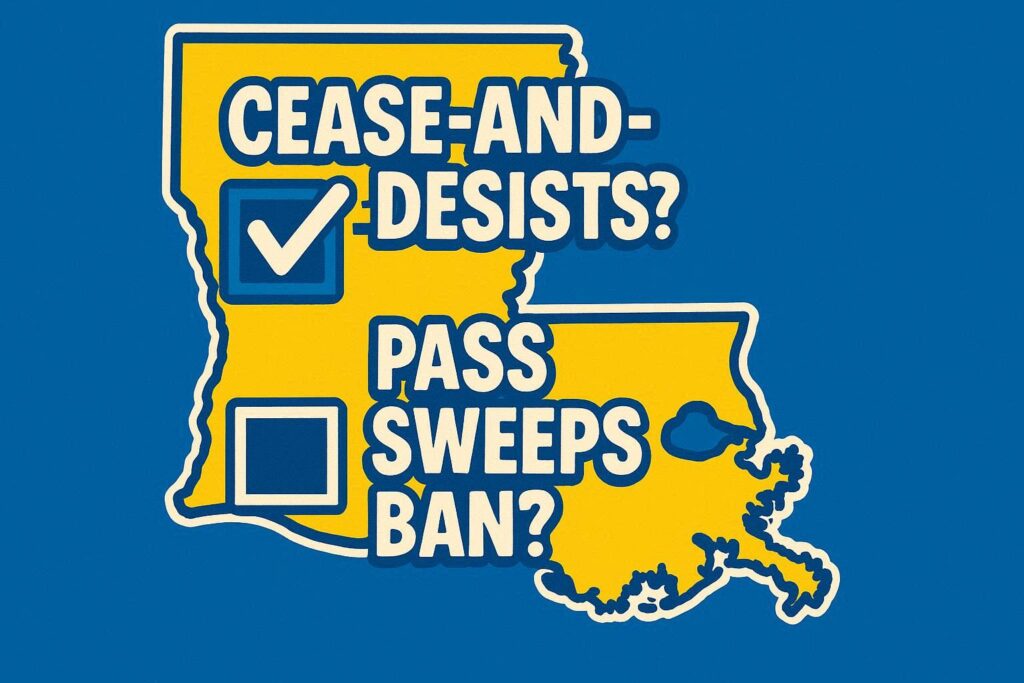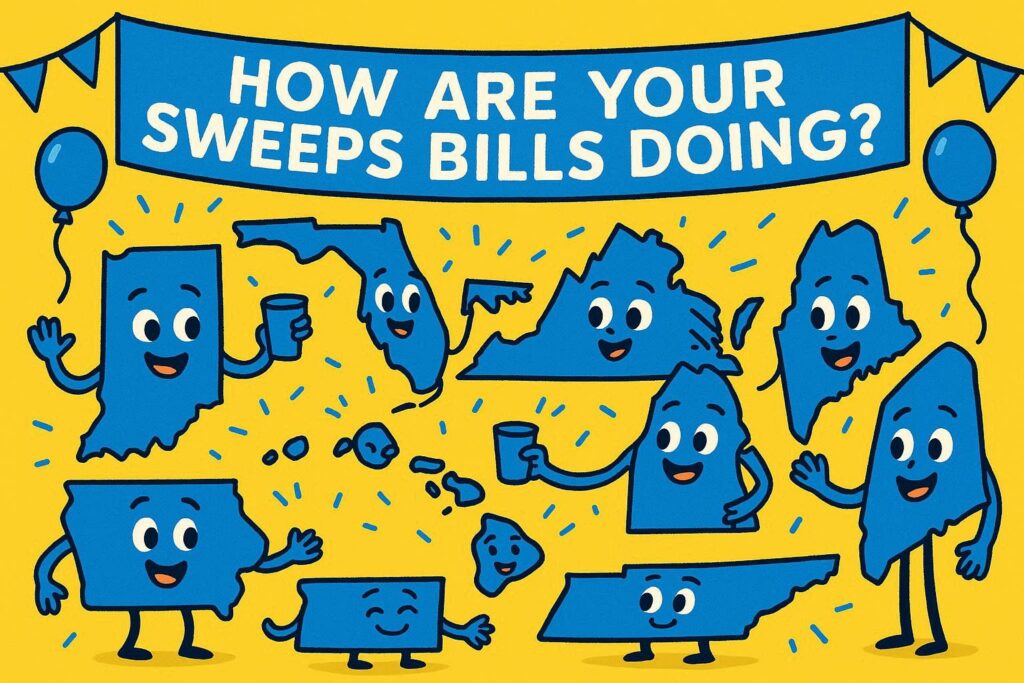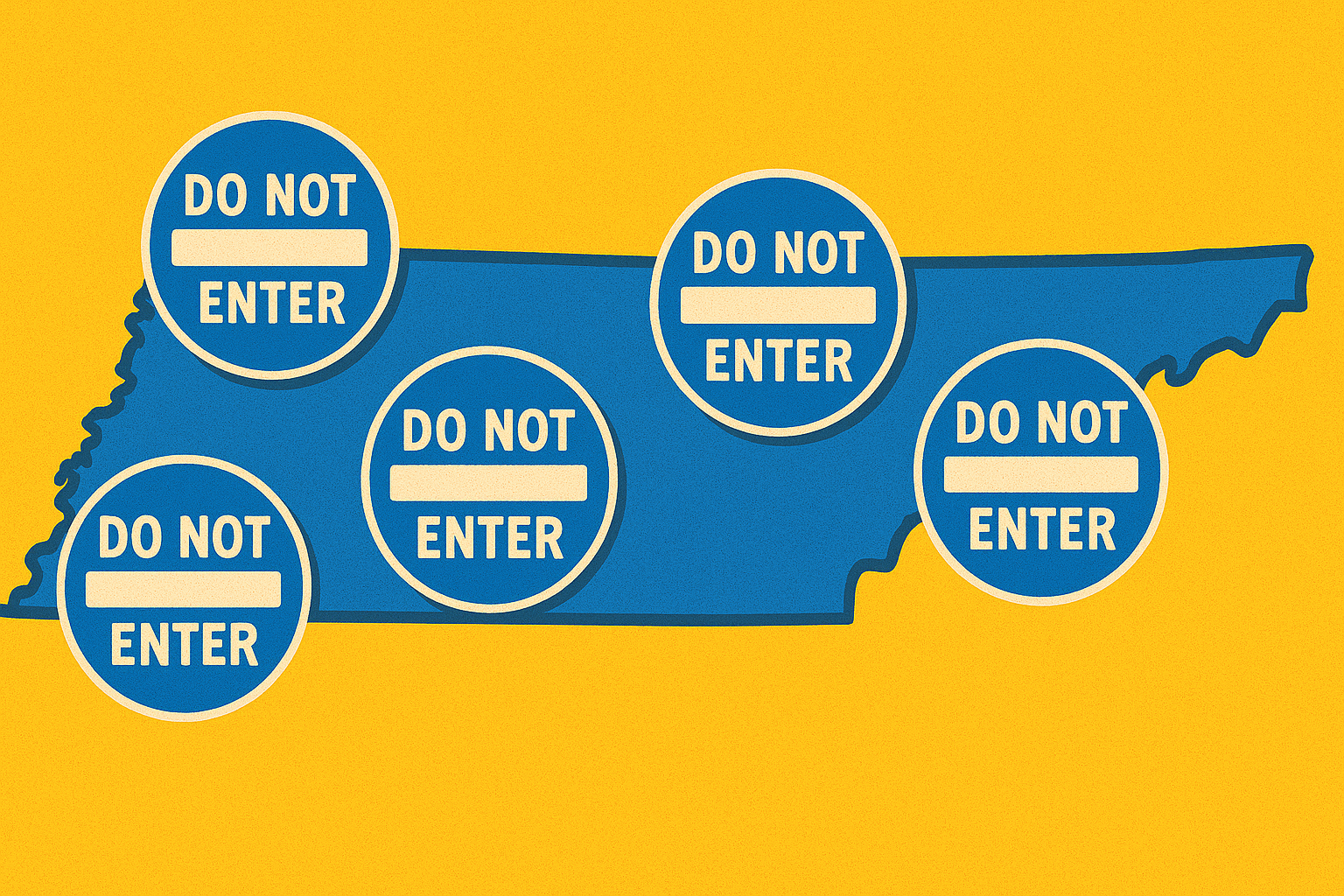According to an analysis of California Assembly Bill 831 prepared for the Senate Appropriations Committee, the bill that would ban online sweepstakes casinos in the state could also levy a “potentially significant” financial burden on both state-level and county-level entities.
AB831 would criminalize any individual or entity that offers sweeps casinos using the dual-currency model, where Sweeps Coins cannot be directly bought by players but can be redeemed for cash. That’s the same type of restriction contained in sweeps ban bills that have popped up throughout the country in 2025, with a handful — New Jersey, New York, Connecticut, and Montana — passing.
But California’s bill goes a step further. It also criminalizes entities that “knowingly support directly or indirectly the operation, conduct, or promotion of an online sweepstakes game within this state.”
The total of potential criminalization created by AB831 leads to the “potentially significant” financial weight associated with it.
Department of Justice
The analysis first highlights the state’s Department of Justice, specifically noting the DOJ could face heavy costs that result from “enforcement actions to shut down” any operators still offering sweepstakes casino-style games.
“DOJ notes that online sweepstakes providers may choose to cease their operations in the State, which would alleviate the department’s enforcement workload,” the analysis reads. “However, to the extent that enforcement action is necessary, DOJ notes these costs will likely be significant because enforcement actions against these providers are complex with difficult jurisdictional issues.”
These jurisdictional issues likely refer to, at least in part, the fact that many operators of sweepstakes casinos aren’t based in California. In fact, many aren’t based in the United States at all.
If the operator’s servers, parent companies, or payment processors are overseas, California courts and law enforcement have limited reach — even if California law makes sweepstakes casinos illegal.
Practically speaking, this makes enforcement difficult. States can pass bans, but actually shutting down or prosecuting platforms based outside the U.S. is not straightforward. It’s certainly not impossible, but it may require extra work and resources.
Translation: It’s not cheap.
Trial court system
The bill analysis goes on to discuss the potential financial impact on the state’s trial court system, which would need to “adjudicate alleged violations” of AB831.
In terms of the specifics of that impact, the analysis said things could vary and “depend on many unknowns, including the number of cases filed and the factors unique to each case.”
For example, according to the analysis, it costs $10,500 in staff labor for a standard eight-hour day of court work. So, if a case lasts 30 days, let’s say, the estimated workload cost for that one case would be $315,000. And if there are 20 such cases, that would be roughly $6.3 million.
And again — that’s not to say that’s impossible.
But it’s another hurdle in the way of enforcement, especially when there are well more than 100 sweepstakes casino operators out there. (We’re not talking about VGW, B-Two Operations, and the reputable brands here, by the way. They will leave if AB831 passes.)
The analysis also highlights a ripple effect that an influx of sweeps casino-related cases could have on the trial court system.
“While the courts are not funded on a workload basis,” it reads, “an increase in workload could result in delayed court services and would put pressure on the General Fund to fund additional staff and resources and to increase the amount appropriated to backfill for trial court operations.”
County-level impact is the least likely
The DOJ and trial court system are both state-level operations.
However, the AB831 analysis also says there could be “potentially significant costs” affecting local funds at the county level “to incarcerate people for the crimes created by this bill.”
The analysis estimates the average cost to house one person in a county jail for a year ranges anywhere from $70,000 to $90,000. Realistically speaking, this is the least likely financial burden that will result from AB831. Only in rare cases would sweepstakes operations lead to actual jail time. As mentioned earlier, most people operating sweeps casinos aren’t California residents. So the most likely penalties resulting from AB831 would be financial.
This is part of why the ACLU got involved
When the California American Civil Liberties Union formally opposed AB831 last month, some may have scratched their heads. Why is the ACLU getting involved with a sweeps casino bill?
But it soon became clear the ACLU threw its weight against AB831 not because it believes in the legality of the sweepstakes dual-currency-model — but because it worried about the potential amount of criminalization caused by the bill.
Here’s what the ACLU said in its written testimony to the Senate Public Safety Committee ahead of that committee’s AB831 hearing on July 15:
“AB 831 would rachet up existing punishments for gambling. Penal Code Section 330 generally prohibits individuals from gambling, punishable by up to six months of incarceration and a $1000 fine. Because of how broadly AB 831’s language sweeps, prosecutors may argue that anyone who participates in an online sweepstakes is directly or indirectly supporting the gambling platform. In essence, AB 831 would double the term of incarceration and increase the maximum fine by 2500% for anyone engaging in online sweepstakes. As affirmed by the Federal Department of Justice, these increased punishments will not deter crime.”
Current status of AB831?
AB831 currently sits in the Senate Appropriations Committee’s suspense file, following its hearing with that committee on Aug. 18, where five opponents of AB831 testified and no proponents testified.
A bill is moved to the suspense file when it has been identified as having a significant fiscal impact.
Bills on suspense are not immediately voted on. Instead, they are held and then considered in a single large hearing (often called the “suspense hearing”) later in the session. At that point, the committee decides whether to move the bill forward, or it can hold the bill, effectively killing it for the year.
In other words, if a bill is moved to suspense, it’s being paused for cost review and its ultimate fate will be decided in a later suspense hearing.
If AB831 does clear the suspense file, it will need to be approved by the full Senate and then re-approved by the Assembly, because this current version of AB831 was not the version that passed in the Assembly this past spring.
California’s 2025 legislative session ends Sept. 12. However, the state runs on a two-year legislative cycle, so even if AB831 doesn’t finish all necessary stages by Sept. 12, it can pick up where it left off when lawmakers reconvene in January.









